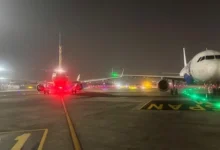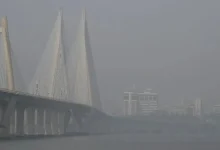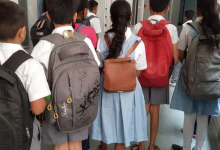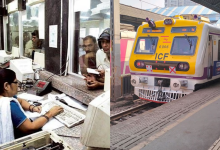Mobile Network Failure Disrupts Services on Mumbai Metro Aqua Line 3

Mumbai: Passengers on Mumbai’s newly launched underground Aqua Line 3 experienced significant disruption on Wednesday when mobile networks across all service providers failed inside metro trains and stations. The blackout rendered mobile ticketing, voice calls, and digital payment options unusable, leading to confusion and delays during rush hour.
Digital Ticketing Interrupted Amid Connectivity Outage
The sudden loss of mobile signals left many commuters unable to access e-tickets or use UPI-based apps at station entry points and vending machines. In response, authorities issued advisories urging passengers to activate tickets via the metro app before entering stations. The incident underscores a persistent dispute between the Mumbai Metro Rail Corporation Ltd (MMRCL) and telecom companies over installing mobile infrastructure in the underground section.
While MMRCL has not issued a formal statement regarding Wednesday’s outage, it previously addressed concerns over the telecom setup. In an earlier clarification, MMRCL stated that it had conducted a transparent bidding process to appoint a neutral telecom infrastructure provider for Line 3. “The appointed provider holds a valid licence and has completed installation. The selection process followed an open tender, supported by telecom firms. Allegations of irregularities are unfounded,” the agency said.
read more: Major Mumbai Metro and Infrastructure Projects Stalled Amid Political Shift
New Section Connects BKC to Worli with Underground Stations
The operational stretch from Bandra-Kurla Complex (BKC) to Acharya Atre Chowk in Worli includes six underground stations. Trains on this segment run every 6 minutes and 20 seconds, covering the distance in about 15 minutes. Currently, eight trains make 244 trips daily, with fares ranging from ₹10 to ₹40. A full-length journey from Aarey JVLR to Worli is priced at ₹60.
Full Line Set for August Launch, PM Modi Likely to Inaugurate
The segment was inaugurated on May 10 by Chief Minister Devendra Fadnavis, who announced that the complete 33.5-kilometre Colaba-SEEPZ corridor would be operational by August. Prime Minister Narendra Modi is expected to inaugurate the full route. The completed line will feature 27 stations — 26 underground and one at ground level and is designed to alleviate traffic congestion and reduce the burden on Mumbai’s suburban rail system.
Built at a cost of ₹37,276 crore, the Aqua Line is intended to offer a modern and seamless commuting experience. However, without mobile connectivity in place, the system falls short of fully delivering on that promise.




